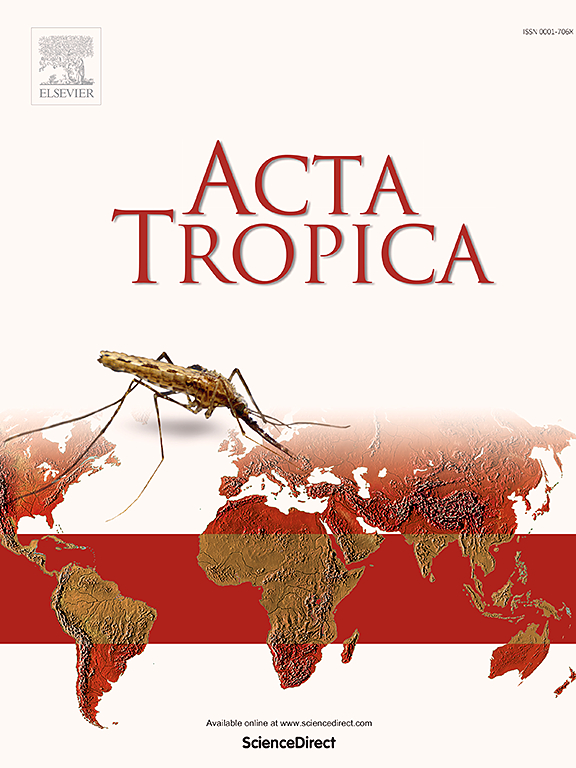The cognitive and neurological implications of toxoplasma gondii infection: Evidence from a systematic review and meta-analysis
IF 2.1
3区 医学
Q2 PARASITOLOGY
引用次数: 0
Abstract
Toxoplasma gondii, a neurotropic parasite, has been implicated in cognitive decline and neurodegenerative disorders, particularly Alzheimer’s disease (AD) and, to a lesser extent, Parkinson’s disease (PD). While frequently asymptomatic, latent infections can disrupt neurotransmitter systems, provoke chronic neuroinflammation, and impair neuronal metabolism—mechanisms that may accelerate cognitive deterioration. This systematic review and meta-analysis included 34 observational studies with over 24,000 participants, evaluating the association between T. gondii infection and cognitive outcomes in both AD and PD populations. Meta-analytical findings demonstrated a significant association between T. gondii infection and AD (log OR: 0.52; 95 % CI: 0.25–0.79), with pronounced impairments observed in global cognition, verbal fluency, and memory domains. In contrast, no statistically significant association was found between T. gondii infection and PD. These findings support a potential role for T. gondii in AD pathogenesis through mechanisms such as neuroinflammation and synaptic dysfunction, while its relevance to PD remains inconclusive. Longitudinal and mechanistic studies are warranted to further clarify causality and inform potential therapeutic strategies targeting parasite-mediated neural injury.
刚地弓形虫感染的认知和神经学意义:来自系统回顾和荟萃分析的证据。
刚地弓形虫是一种嗜神经寄生虫,与认知能力下降和神经退行性疾病,特别是阿尔茨海默病(AD),以及在较小程度上与帕金森病(PD)有关。潜伏性感染通常无症状,但可破坏神经递质系统,引发慢性神经炎症,损害神经元代谢机制,从而加速认知退化。本系统综述和荟萃分析包括34项观察性研究,超过24000名参与者,评估弓形虫感染与AD和PD人群认知结果之间的关系。荟萃分析结果显示,弓形虫感染与AD之间存在显著关联(log OR: 0.52;95% CI: 0.25-0.79),在整体认知、语言流畅性和记忆领域观察到明显的损伤。相比之下,弓形虫感染与PD之间没有统计学意义的关联。这些发现支持弓形虫通过神经炎症和突触功能障碍等机制在AD发病机制中的潜在作用,但其与PD的相关性仍不确定。纵向和机制研究有必要进一步阐明因果关系,并为针对寄生虫介导的神经损伤的潜在治疗策略提供信息。
本文章由计算机程序翻译,如有差异,请以英文原文为准。
求助全文
约1分钟内获得全文
求助全文
来源期刊

Acta tropica
医学-寄生虫学
CiteScore
5.40
自引率
11.10%
发文量
383
审稿时长
37 days
期刊介绍:
Acta Tropica, is an international journal on infectious diseases that covers public health sciences and biomedical research with particular emphasis on topics relevant to human and animal health in the tropics and the subtropics.
 求助内容:
求助内容: 应助结果提醒方式:
应助结果提醒方式:


